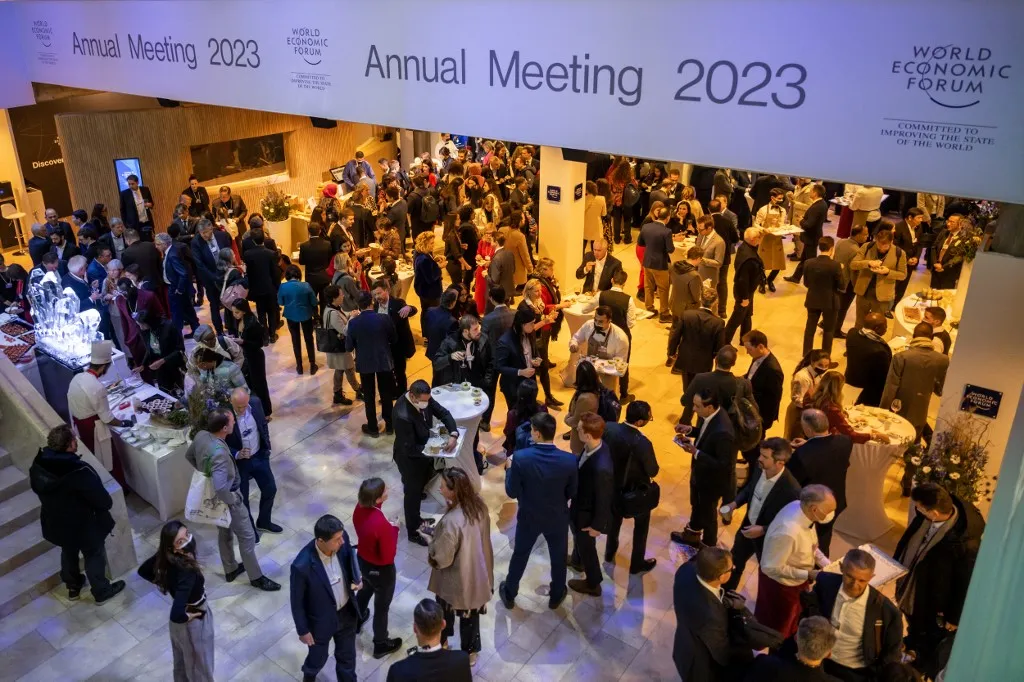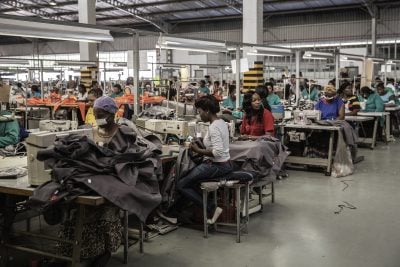As the World Economic Forum wraps up, the African heads of various sectors are seeking partnerships with other nations and investors to digitise, invest in climate friendly agriculture and create job opportunities on the African continent.
As I enjoy the snow and cold and take to the slippery roads in Davos, hopping from meeting to meeting, I am carefully listening to the discussions and seeking solutions to the unintended consequences of the current global shocks to food systems facing Africa’s smallholder farmers.
The discussions are extremely relevant, but the solutions are not so concrete. I was hoping to hear more African voices pushing for concrete solutions to issues such as climate adaptation or environmental resilience.
But only a few African voices were present pushing for solutions problems, including Dr Agnes Kalibata, president of AGRA; Ndidi Nwuneli, a WEF young global leader and Schwab Social Innovator; Winnie Byanyima, executive director of UNAIDS and Samia Suluhu Hassan, president of Tanzania.
Still, I am encouraged that Davos billionaires, philanthropic organisations and a few African voices are discussing the opportunities for long term environmental and social resilience in value chains, mainly by pushing for adaptation to the challenges of climate change and the pressing social objectives of increased food supplies, improved wellbeing and the eradication of poverty. These goals particularly resonate with Africa’s farmers as well as other social classes.
I am encouraged to hear many global food companies and input suppliers committing to decarbonise their supply chains – without this, the impact of climate change poses increasingly severe risks to livelihoods and food systems. And I am hearing voices push for more climate-friendly farming, “regenerative agriculture,” and the environmentally friendly use of fertilisers.
Furthermore, there are good discussions and questions on how to overcome financial and cultural challenges and ensure better soil health to increase food production.
Africa’s presence in Davos helps to showcase agricultural models that are working, and even more importantly, helps the continent to tap or attract money from Davos billionaires for Africa’s agriculture.
Against this encouraging backdrop, the three key messages I am bringing to Davos are:
1 – While addressing food security challenges, let us incentivise and enable a return to regenerative food systems. Farmers in Africa (especially smallholders) bear the burden of climate impacts and food insecurity but can’t bear the burden of making the transition alone – we need the tools and partners to support them.
2 – We must ensure that markets don’t fall short of expectations as we rethink the food sector. To adopt regenerative agriculture and other innovative models, farmers will only respond to functional and sustainable markets. If not, farming will continue to disrupt the environmental ecosystem.
3 – I call upon all investors to invest in country-led food systems, transformation strategies and plans. In Africa, countries like Rwanda, Ghana and Malawi are already pathfinders. They are showing the way on what a transformative food system strategy and investment plan looks like.
Since the first UN Food Systems Summit in 2021, 37 countries in Africa have committed to transform their food systems in line with the UN Sustainable Development Goals. The African Union is developing guidelines for food system investments. A new report from the World Economic Forum and Bain notes that high performing food systems provide healthy and nutritious diets, create inclusive and dignified livelihoods, grow the economy, mitigate and adapt to climate change, and safeguard biodiversity and nature. Let us embrace food systems transformation!
Boaz Blackie Keizire is Head of Policy and Advocacy at AGRA and also a 2017 Fellow for the Aspen New Voices Fellowship. Boaz also Heads the Africa Food Prize Secretariat.
Want to continue reading? Subscribe today.
You've read all your free articles for this month! Subscribe now to enjoy full access to our content.
Digital Monthly
£8.00 / month
Receive full unlimited access to our articles, opinions, podcasts and more.
Digital Yearly
£70.00 / year
Our best value offer - save £26 and gain access to all of our digital content for an entire year!
 Sign in with Google
Sign in with Google 



